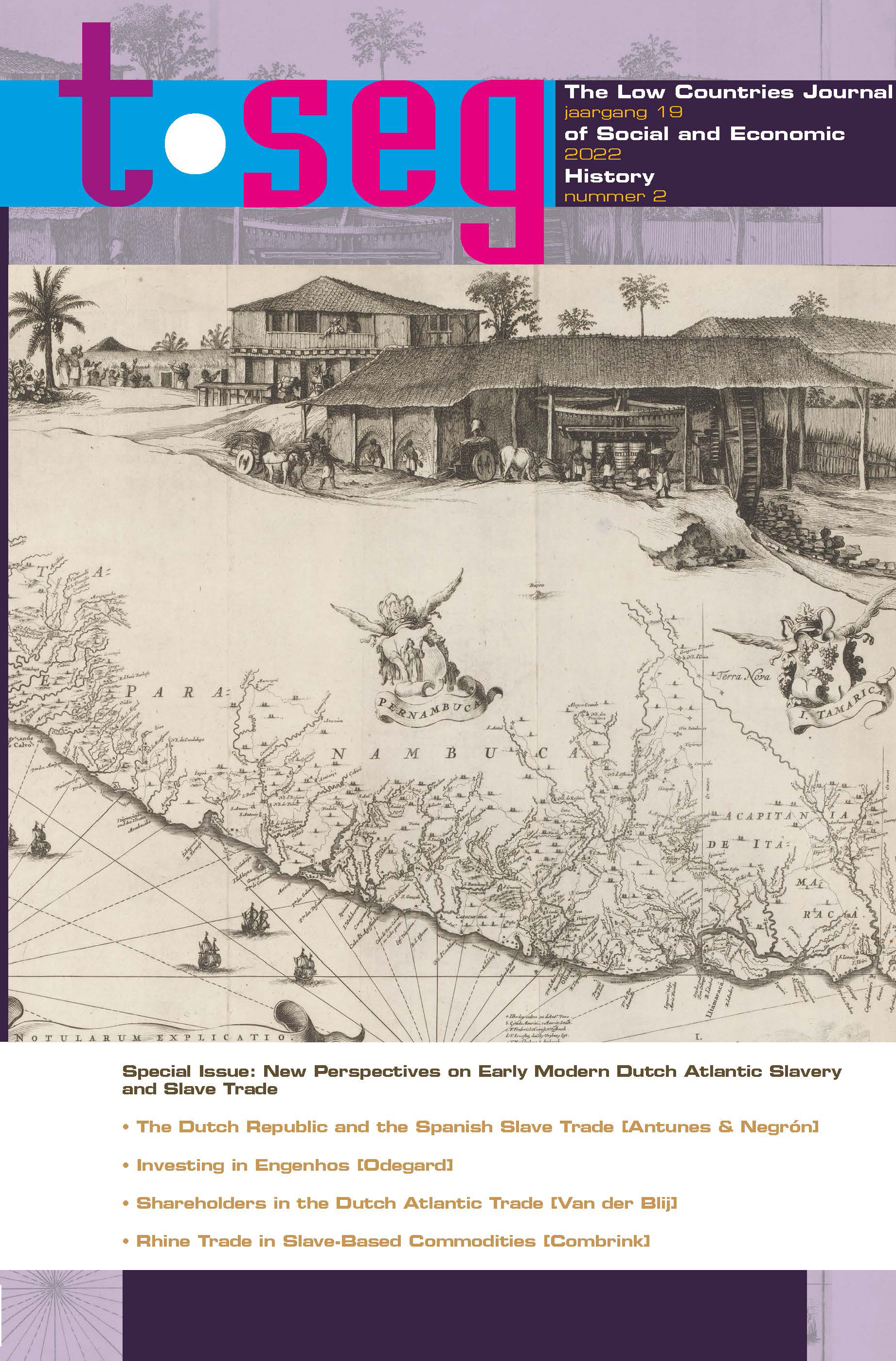Investing in Engenhos: Credit, Claims, and Sugar Mills in Dutch Brazil
DOI:
https://doi.org/10.52024/tseg.8144Keywords:
West India Company, Dutch Brazil, Brazil, Sugar, Johan Maurits van Nassau-Siegen, Pernambuco, Sugar Cycle, Sugar Mill, Slavery, CreditAbstract
This article examines the issue of private investment in the seventeenth-century Dutch colony in Brazil. For the first time, new archival discoveries allow for a reconstruction of the size of private investment in the colony, as well as a breakdown into distinct investment activities. The article argues that private investment was an absolute necessity for the West India Company in the hope of making its colony successful, as it could not provide the required funds by itself. Private individuals claimed to have invested over eleven million guilders in the colony, nearly one-and-a-half times the WIC’s original capitalization. A number of case studies elaborate the overall figures presented and show that Dutch investors did indeed move into sugar cultivation and even moved into agricultural property development. Presenting these data and sources will, it is posited, allow for a fuller picture of the role of former inhabitants of Dutch Brazil in the development of plantation systems in the wider Caribbean from the mid-1640s onwards.
Downloads
Published
Issue
Section
License
Copyright (c) 2022 Erik Odegard

This work is licensed under a Creative Commons Attribution 4.0 International License.






